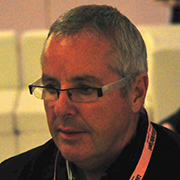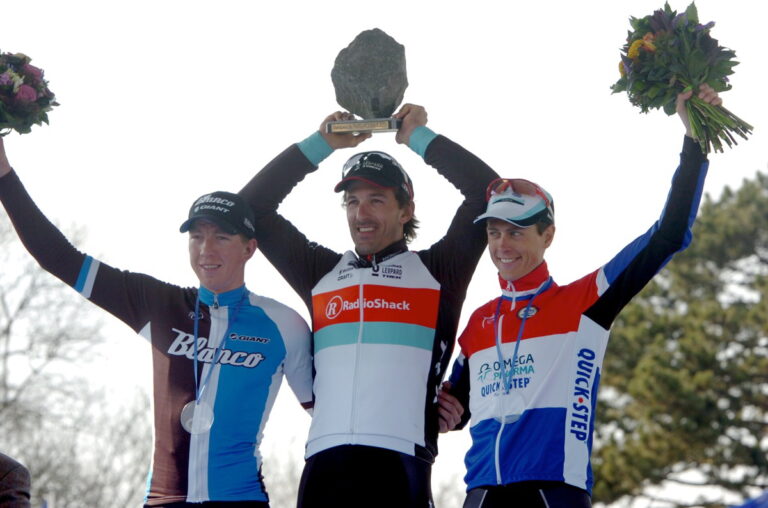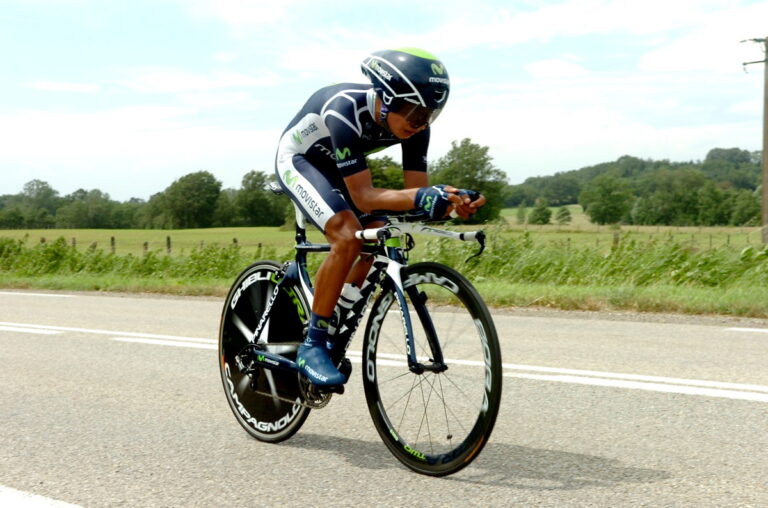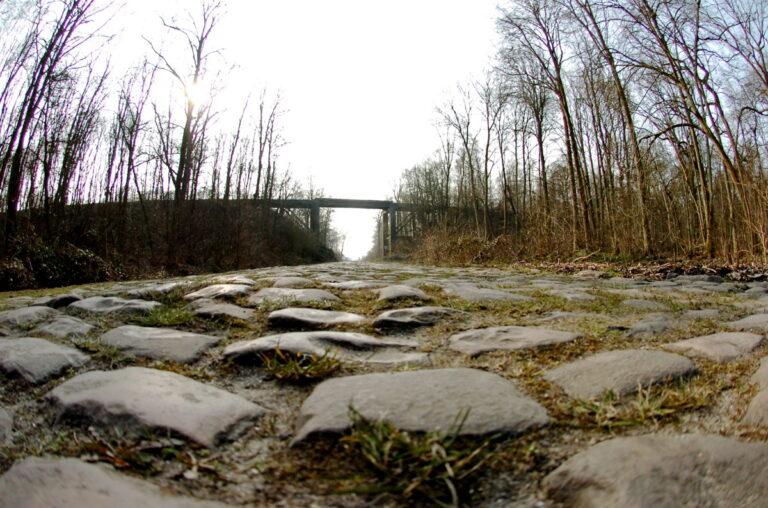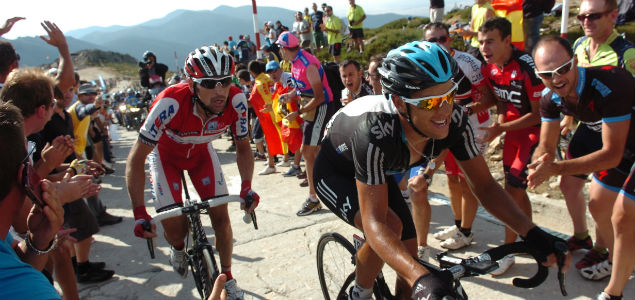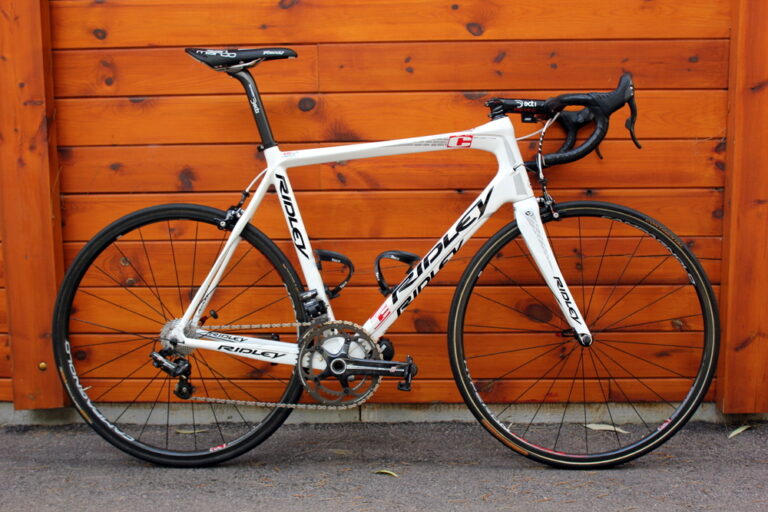Some achievements cannot be diminished by the passage of time.
It is more than a quarter of century since Stephen Roche became only the second rider in the history of professional cycling to win the sport’s Triple Crown when, in 1987, he won the Giro d’Italia, the Tour de France, and the world road race championship.
While few have even attempted the feat since, should Roche’s achievement (and that of Eddy Merckx) be matched, his stature as one of the greatest ever to turn a pedal would not be affected.
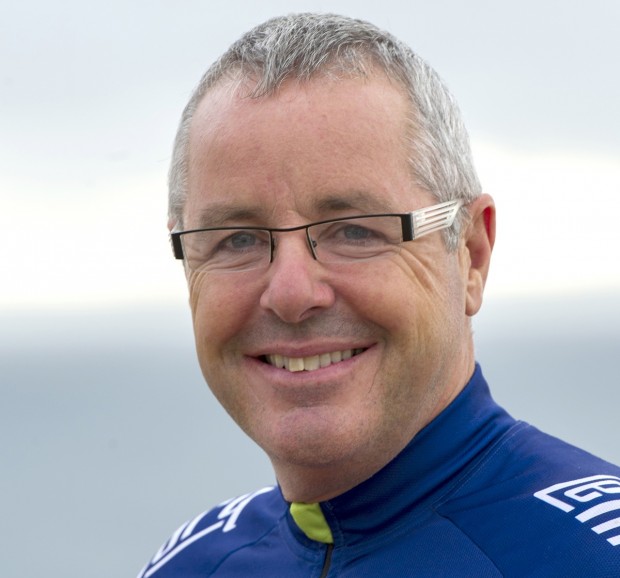
When RoadCyclingUK sits down with Roche at Mallorca’s Ponent Mar hotel, home to the Irishman’s cycling holiday business, the conversation inevitably turns to another Anglophone rider who will attempt to add a maglia rosa and rainbow jersey, albeit the stripes of world time trial champion, to a collection that already includes the maillot jaune of Tour de France winner.
Roche is relaxed at the prospect that Bradley Wiggins, whose historic victory in last year’s Tour de France made him, after Roche, Greg LeMond, and Cadel Evans only the fourth English-speaking rider to win the race, might join an elite group of just seven riders to achieve overall victory in the Giro as well as the Tour, and jokes about additions to “the family”.
A stylist and tactician with a contempt for second place, Roche married a serene pedal stroke with a philosophy of riding to win
There are other current topics on which the opinion of one of the sport’s elder statesmen is worth canvassing, among them the dominance of Team Sky and the riders likely to contest this year’s Tour de France.
While it’s easy to focus on that year, Roche’s achievements in 1987 are not an aberration. A stylist and tactician with a contempt for second place, Roche married a serene pedal stroke with a philosophy of riding to win and settling for the consolation of having given his best only when events beyond his control deprived him of victory.
Evidence for Roche’s enormous talent can be found before and after 1987: as early as 1981 when he won Paris-Nice, four years later when he finished on the podium in Paris at the 1985 Tour de France, and as late as 1989 with victory in the Tour of the Basque Country. There is his 1984 triumph at the Tour de Romandie to consider (a second followed, almost inevitably, in 1987), and victory in the 1985 Criterium International, as well as two further top-10 finishes in the Giro (1989, 1993). Roche was one of the greatest riders of an era that included Fignon, Hinault, LeMond and Indurain.
A recurring knee injury forced his retirement from the sport at the end of 1993, and he now splits his time between Mallorca, charity rides where he provides the incentive for hundreds of amateurs to ride alongside, and media work that returns him to the stages on which he was once a major player.
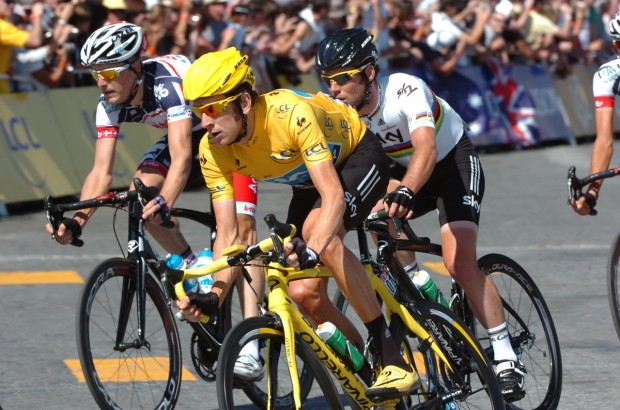
It is the last that allows him to study in detail the current generation of elite riders. Wiggins carried all before him last year as Roche had done in 1987. The Londoner added his name to the winner’s list of Paris-Nice, the Tour de Romandie, and made a second entry in the records of the Criterium du Dauphine, as well as winning a fourth Olympic gold medal. This year, he will try for the Giro d’Italia.
Roche answers without hesitation when asked to recall his reaction to Wiggins’ publicly-stated desire to add the Giro to his palmares: “I was delighted”. He believes that an attempt to win both races (although Wiggins has vacillated about his intentions for the Tour) can only be good for cycling.
Wiggins is capable of victory in the Giro, Roche says, but cautions the 32-year-old against underestimating the challenge. The corsa rosa is, for many riders, “their world championships,” he says; one example he gives of a race whose culture differs from that of the Tour, and which can be, he adds, harder. Bad weather and the danger presented by less accomplished riders intent on glory could derail Wiggins’ plans if he is not vigilant.
Froome is better placed to cope with Contador’s attacks in the mountains than Wiggins, Roche says, and the Spaniard is a time trialist of a standard able to beat specialists in the discipline
Roche says many riders are capable of racing the Giro and the Tour in the same season, but believes the greater emphasis placed on the French race prevents many from trying; not, he adds, because the believe they are not capable, but because they feel they cannot recover from their efforts in Italy in time for the Tour.
Wiggins must shun the limelight in the near-five week period between his engagements in Italy and France, Roche believes, and prioritise mental fitness over physical condition. Roche says his recovery from the 1987 Giro and preparation for the Tour of the same year involved no racing and a final week of motorpace training to gain form for the prologue time trial; a stage, he says, that provided the opportunity to inflict psychological damage on his rivals by “hitting hard” after a grueling Giro.
Alberto Contador’s expected return to La Grande Boucle will present Team Sky’s greatest obstacle to a second consecutive victory, Roche believes. The first week, he predicts, will be dangerous, and both Froome and Wiggins are likely to receive protection from riders of the calibre of Paris-Nice winner Richie Porte and Edvald Boasson Hagen; the rider who hits the foot of the first hill in the best condition is likely to be designated leader. Froome is better placed to cope with Contador’s attacks in the mountains than Wiggins, he reasons, and the Spaniard is a time trialist of a standard able to beat specialists in the discipline.
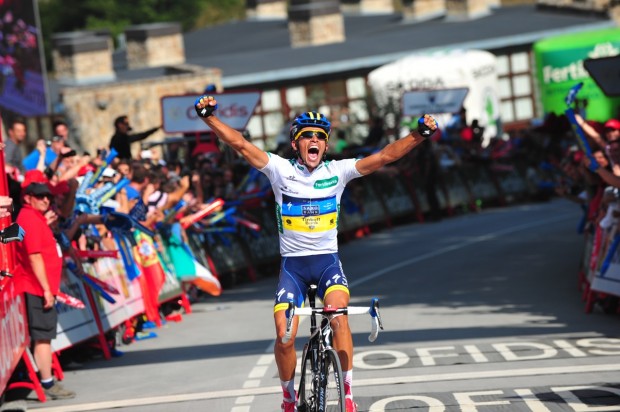
Team Sky has raised the professionalism of the WorldTour peloton, Roche says, and will undoubtedly spawn imitators. Rivals who thought their own methods were meticulous had been forced to raise their standards by the arrival of a team he describes wryly as “the Black Armada”. He jokes about “little green men” emerging from the famed team bus with barriers to protect the riders, but clearly admires Sky’s “clean, straight, professional” approach, one he says follows a line of conduct, where Is are dotted and Ts crossed. Dave Brailsford’s mischievous concealment of the Great Britain track team’s wheels to heighten the paranoia of their French rivals causes Roche some amusement, but he is aware of professional cycling’s history and the cyclical nature of dominance. “Years ago, we had Ti-Raleigh dominating and there was no big hullaballoo about it.”
Roche’s cycling holiday business on Mallorca now occupies most of his time, but he remains a familiar face at cycling’s biggest races. They offer him a chance to catch up with contemporaries, with whom he admits contact is rare, but warm. Pedro Delgado, his greatest rival in the 1987 Tour de France and its winner the following year, Roche describes as “a gentleman”; one who flew to Ireland last year to meet Irish Taoiseach Enda Kenny and to ride Roche’s Leinster Loop, a charity sportive.
Roche clearly admires Sky’s “clean, straight, professional” approach, one he says follows a line of conduct, where Is are dotted and Ts crossed
Last year, Roche made his own travel arrangements to open a bike shop for the little-known Gilles Sanders. The Frenchman, riding his first Tour de France, shared the road with Roche during the Irishman’s now-legendary ascent of La Plagne in 1987. The pair hadn’t met in the intervening quarter century, but when Roche received the call from Sanders, he travelled to Toulouse without hesitation or fuss to open the shop. Roche offers the engagement as an example of the brotherhood between former racing cyclists.
Wiggins’ attempt to win a second Grand Tour will doubtless enthral the Englishman’s legions of supporters this summer, and, if he is successful, further cement his place in cycling’s history books. Having transcended the sport last year with his historic victory in the Tour, a second Grand Tour title would raise his profile to new heights. Victory for Wiggins in the Giro would provide a new context in which to consider the scale of Roche’s achievement in winning not only two Grand Tours, but doing so in a single year, and claiming a world title to boot.
Stephen Roche Cycle Holidays in Calvia, Majorca is a training partner of Human Race, the UK’s largest mass-participation sports events company. To see Human Race’s full events calendar go to www.humanrace.co.uk To book your cycle holiday see www.stephenroche.com quoting code-HR2013 to receive a discount. Also check out www.visitcalvia.com for more on the region.

